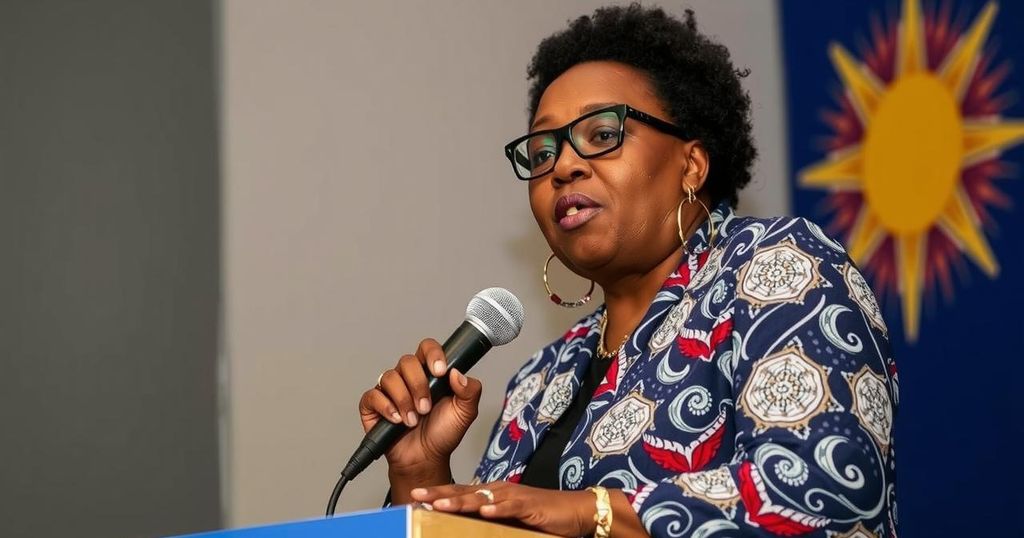Namibia Election: Opposition Candidate Itula Rejects Poll Results Amid Allegations of Misconduct
Namibia’s IPC has rejected the election results due to alleged electoral malpractices. The voting process was marred by logistical issues, leading to extended voting and allegations of disenfranchisement. Panduleni Itula criticized the electoral commission and intends to pursue legal action. The results thus far indicate a competition between Swapo’s Netumbo Nandi-Ndaitwah and Itula, with a second-round possibility looming if no majority is secured.
Namibia’s principal opposition faction, the Independent Patriots for Change (IPC), has issued a declaration refusing to acknowledge the election results from this week’s general election, citing severe logistical challenges. Panduleni Itula, the presidential nominee for IPC, alleged that “glaring and undeniable” electoral malpractice marred the voting process, which saw disruptions such as ballot shortages and technical failures extending the voting timeline through Saturday.
Itula sought to unseat the ruling South West Africa People’s Organisation (Swapo), under which the country has operated since gaining independence in 1990. Netumbo Nandi-Ndaitwah, Swapo’s candidate, aspires to be Namibia’s first female president. As voting commenced on Wednesday, reports indicated that in certain areas, ballots were lacking, leading to prolonged voting sessions.
Addressing a press conference, Itula stated, “We shall not, under any circumstances, recognise the outcome of the 2024 election… that is still, in our opinion, illegitimately continuing,” appealing for tranquility amid tensions. He affirmed IPC’s commitment to seeking legal redress, urging citizens who felt disenfranchised due to electoral mishaps to report incidents to law enforcement.
In Namibia, the presence of the South West Africa People’s Organisation (Swapo) has significantly influenced the political landscape since the nation achieved independence from South Africa in 1990. Over the years, Swapo has maintained a stronghold on power, yet recent elections have demonstrated a gradual decline in its support. The IPC, notably emerging as a contender, raises concerns regarding electoral integrity amidst allegations of mismanagement, trying to navigate a landscape where public disenchantment with long-standing ruling parties is growing.
In conclusion, the refusal of the IPC to recognize the election results signifies a pivotal moment in Namibian politics, especially against the backdrop of electoral discrepancies. With the elections revealing a potential shift in political sentiment, the implications could resonate through further legal actions and continued public discourse surrounding electoral reforms in Namibia. As counting proceeds, the situation warrants vigilant observation, particularly regarding Swapo’s historical dominance in the nation.
Original Source: www.bbc.com




Post Comment